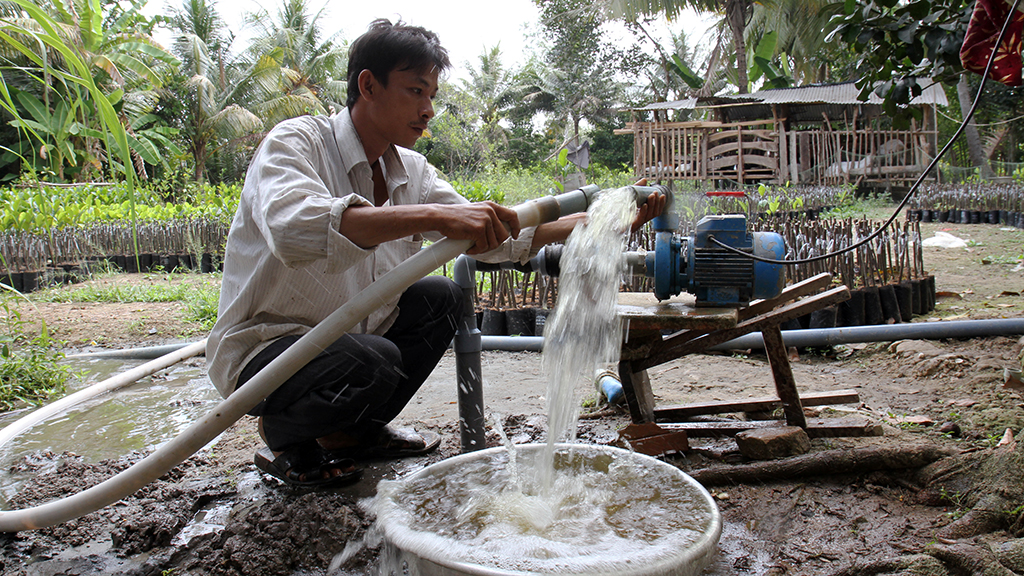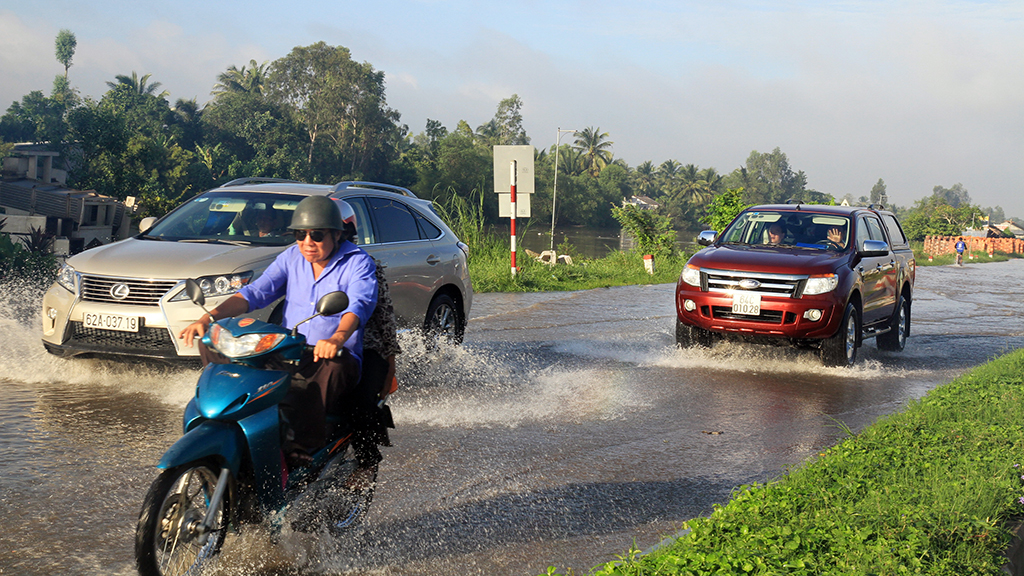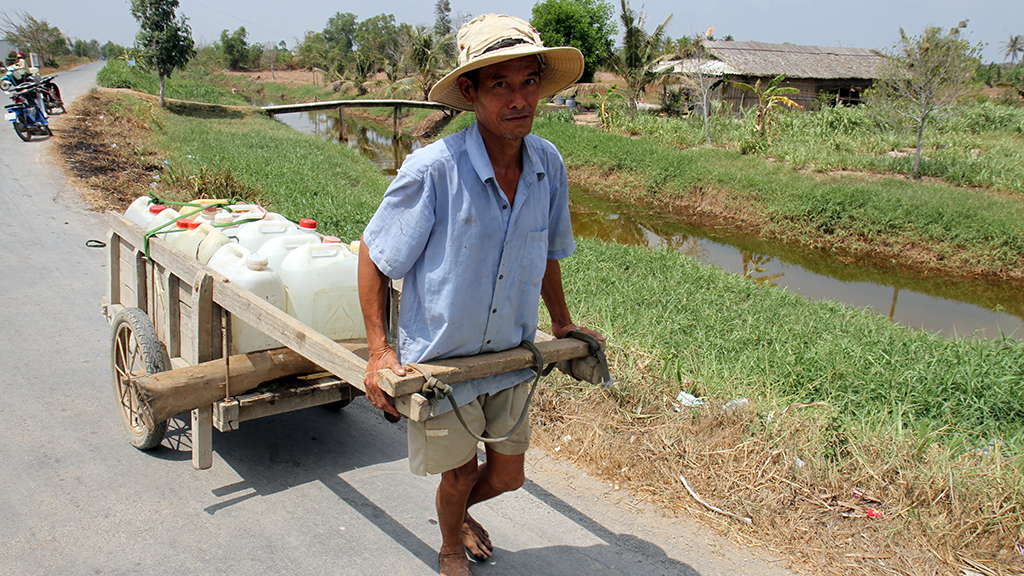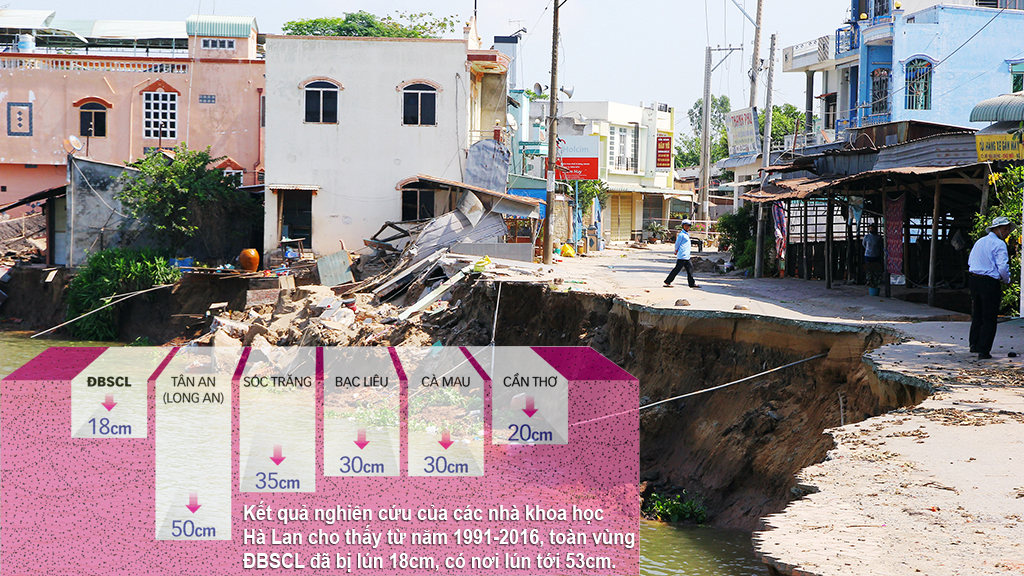Subsidence and rising sea level are threatening to sink the entirety of Vietnam’s Mekong Delta in the near future if preventive measures are not carried out quickly, an expert has warned.
Nguyen Huu Thien, an expert on ecology and climate change, is expected to express his opinions at a conference on the Mekong Delta region held by the central government in Can Tho City on September 26 and 27.
Thien warned that the country’s ‘rice basket’ sinks by 1.1 centimeters every year.
The situation is much worse in urban areas and industrial zones with annual subsidence of about 2.5 centimeters.
Sea level rises by one millimeter per year, the pundit continued, adding that the Mekong Delta is on average only one to 1.5 meters above sea level.
If this continues, it will only be a matter of time before the region is completely submerged, Thien said.
Thien quoted the findings of scientists from Utrecht University in the Netherlands, whose study revealed that the Mekong Delta had sunk by 18 centimeters and up to 53 centimeters in some places, between 1991 and 2016.
The phenomenon has been exacerbated by climate change, which causes sea level to rise, while subsidence in the region has never been more serious, he remarked.
 |
| A farmer extracts groundwater for cultivation in Ben Tre Province. Photo: Tuoi Tre |
Groundwater exploitation
The research attributed subsidence to the excessive exploitation of local groundwater.
The Mekong Delta has seven layers of groundwater resource, all of which are depleting.
The work of the Dutch researchers also revealed that the region had sunk by 40 millimeters per year between 1991 and 2000, Thien continued, adding that the annual rate increased to 60 millimeters from 2000 to 2005, 90 between 2006 and 2010, and up to 1.1 centimeters during the 2011-16 period.
Local farmers have dug deeper wells in recent years as water at the upper layers has become contaminated with alum and saline.
While the Mekong Delta has many large river systems, local waterways are now unsafe for swimming, let alone for cooking, drinking, and other daily activities, the Vietnamese expert assessed.
Several rivers have also become polluted by industrial wastewater, pesticides, and animal husbandry operations, forcing people to use groundwater as their primary source of fresh water for daily use, business operations, and production.
 |
| A section of National Highway 1 in Vinh Long Province is flooded by high tide. Photo: Tuoi Tre |
Stopping groundwater exploitation is a must
The only solution is to minimize or stop the exploitation of groundwater and utilize surface resources, Thien explained.
This will require local authorities to exert more effort in preventing rivers and lakes from becoming contaminated, he suggested.
Farmers should switch to high-tech agriculture as in more modernized countries, which will help reduce pollution.
People in coastal locations should also adapt to using salt and brackish water in their crop cultivation in order to become less reliant on fresh water.
Alternative sources for drinking water can be obtained from storing rainwater and applying nanotechnology and reverse osmosis (RO) to turn salt water into fresh water.
 |
| A resident carries bottles of groundwater for daily use as local rivers and canals have become polluted. Photo: Tuoi Tre |
Thien advised against structural measures such as building dams, as they are costly and do not guarantee good results.
Constructing embankments to prevent salinity can also backfire because rivers and lakes can become more polluted, he elaborated.
The Mekong Delta is distinct in that the river system is connected with the sea through hundreds of outfalls.
Preventing this from happening by building dams can cause a disturbance to the river’s eco-system and further environmental degradation, the expert claimed.
Like us on Facebook or follow us on Twitter to get the latest news about Vietnam!
























































